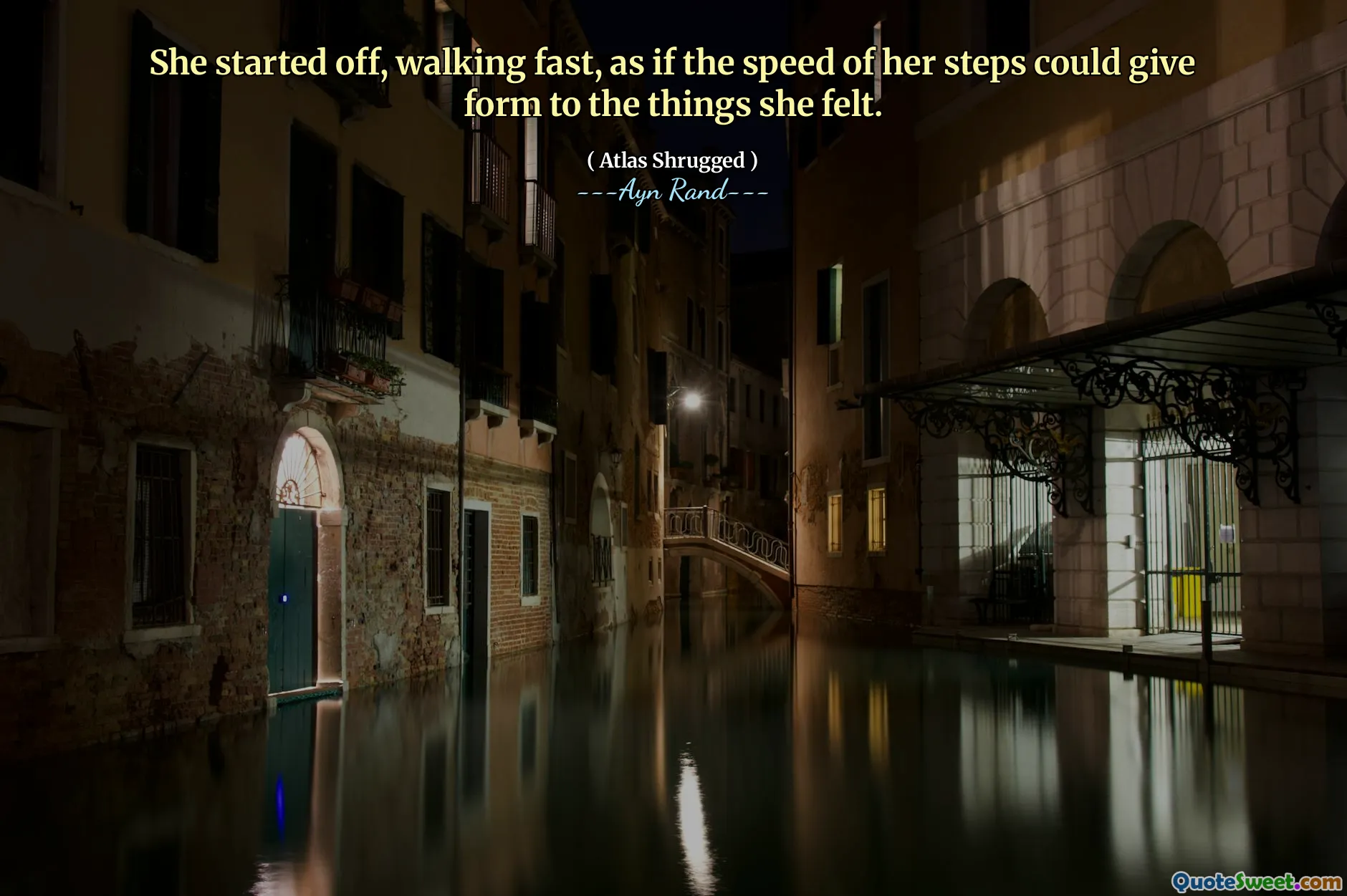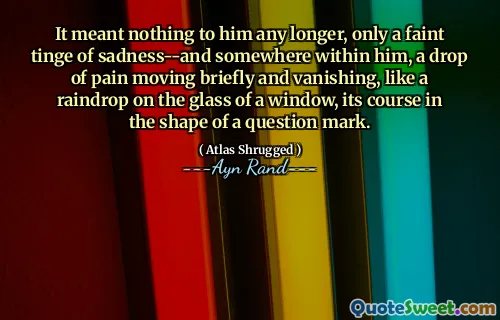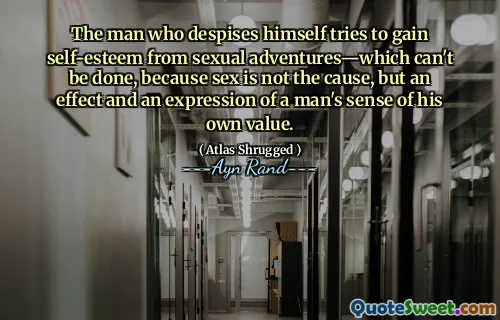
She started off, walking fast, as if the speed of her steps could give form to the things she felt.
This quote vividly captures the powerful intersection between action and emotion. The act of walking fast becomes more than just a physical movement; it symbolizes an urgent attempt to shape one’s inner world into something tangible. Often, when confronted with complex feelings—be it longing, frustration, hope, or confusion—people instinctively channel their emotional energy into physical expressions. In this case, her quick footsteps serve as a metaphor for the desire to give form or expression to her intangible emotions. Such a portrayal resonates deeply because it underscores the human tendency to seek outward expression as a means of processing inner experiences.
This dynamic can be linked to the broader theme of how individuals cope with what is often unspoken or difficult to articulate. Movement, especially in a determined or hurried fashion, can be a way of translating inner turmoil into physical action, creating a sense of agency amid emotional chaos. The speed of her steps also suggests a sense of urgency or intensity—perhaps she’s eager to reach clarity, escape from what burdens her, or find some form of release.
Moreover, this quote reminds us that physical actions can be deeply symbolic, acting as external manifestations of internal states. It highlights the importance of embodiment—the idea that emotions are not just mental states but can be lived through bodily gestures. The language used paints a vivid picture of emotional earnestness, emphasizing that sometimes movement becomes a form of self-expression when words fall short.
From a broader perspective, it raises questions about how people communicate feelings that are difficult to articulate and how physicality often acts as a bridge for emotional expression. Our bodies, whether consciously or subconsciously, turn emotions into actions, giving shape and presence to what lies beneath the surface.
In the context of the book 'Atlas Shrugged' by Ayn Rand, this quote, although not originally from it, dovetails into themes of individual agency, self-determination, and the ceaseless effort to mold one’s reality based on inner convictions and feelings.








